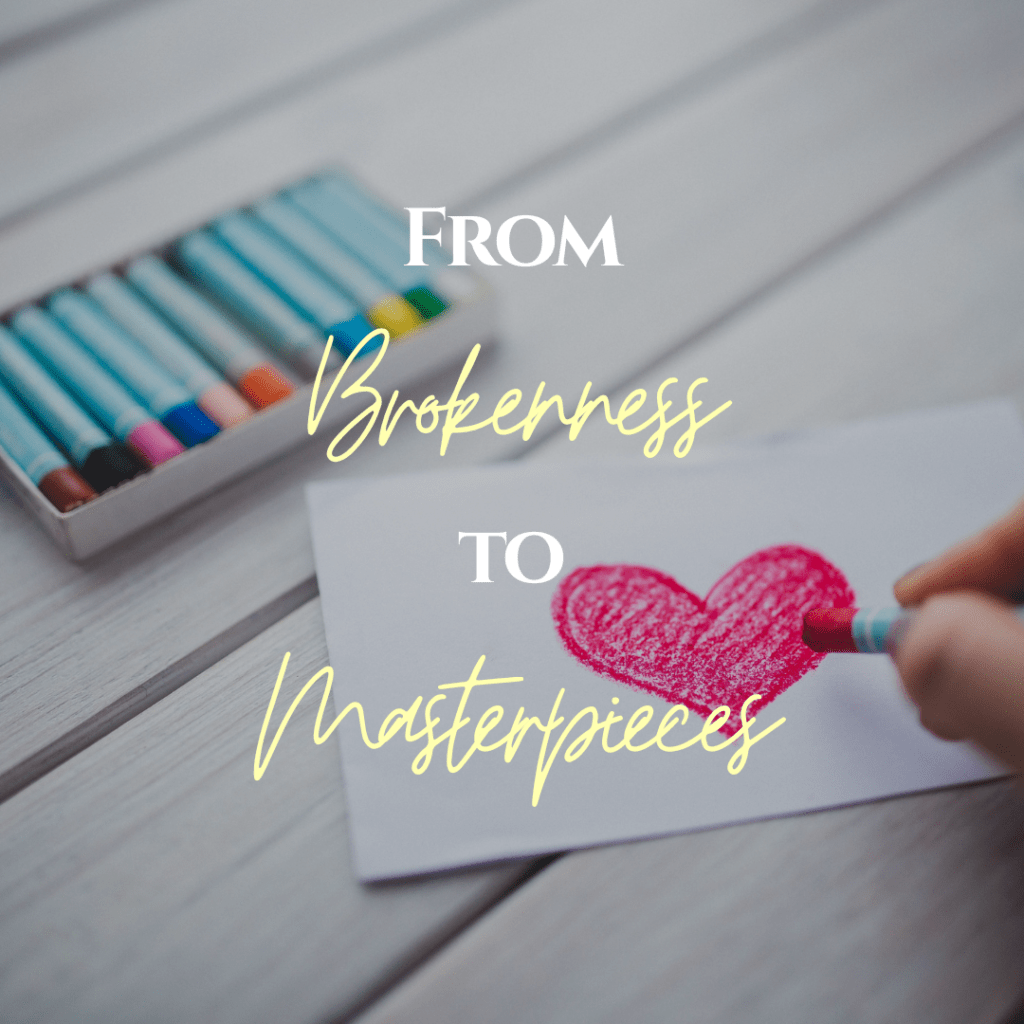In the tapestry of life, it’s often the unexpected, the imperfect, and the fractured that weave the most difficult and beautiful patterns. Just as a broken crayon can still be used to create a masterpiece on paper, so too can individuals with brokenness and imperfections contribute to the beauty and flourishing Museum of God’s Kingdom. This metaphor holds a deep truth that resonates with the human experience; highlighting the potential that lies within each of us, regardless of our perceived flaws. This article will explain how the phrase “Broken Crayons Can Still Paint Beautiful Art for God’s Kingdom” demonstrates truths in our lives.
The notion of brokenness is natural to the human journey. We all carry within us the memory of past mistakes, heartaches, and disappointments. These experiences shape our identities, our perspectives, and our actions. Just as crayons break or are shortened through use, our lives too are marked by wear and tear. However, it is important to recognize that brokenness is not the same as worthlessness. Instead, it is through our brokenness that we gain appreciation for life, empathy, and a unique ability to understand the struggles of others.
God’s Kingdom is distinguished by unconditional love and grace. It is a place where imperfections are not seen as disadvantages, instead as opportunities for growth. When we let go of the idea that we must be perfect to be of value, we open ourselves to the possibility of contributing meaningfully to life and our purpose. Just as an artist might choose to utilize a broken crayon intentionally for its distinct texture and color, so too can God work through our brokenness and imperfections to bring about beauty and strength.
The message of redemption is at the heart of the Christian faith. It is the story of restoration where brokenness is not the end of our book; rather the beginning of a new chapter. Just as a broken crayon can be melted down and reshaped into something new, our lives can be reshaped through God’s redeeming love. Rahab was a prostitute in the Old Testament; However, in the New Testament, she is a great grandmother to Jesus the Christ. Her transformation serves as a testament to the limitless potential of redemption and how God is willing to rewrite our less than pleasant stories for His glory.
As individuals who have experienced brokenness, we are provided the ability to empathize with and support others who are struggling. Our own stories of healing and redemption become powerful tools to inspire hope and encourage healing in others. Like an artist mentoring a fellow artist on how to create beauty from broken crayons, we too can come alongside those who are hurting and offer them guidance, love, and a safe space to share their own journeys.
Just as crayons are of a variety of brands, colors, shapes, and sizes, so too is God’s Kingdom made up of a rich tapestry of diverse individuals. Our brokenness adds depth and relatability to His masterpiece. In embracing our individuality and celebrating the differences among us, we contribute to a more vibrant representation of God’s Kingdom. The idea of unity in difference is the cornerstone of Christianity. Through embracing our brokenness, we can fully appreciate the beauty of said unity.
History is also full of examples of individuals who, despite their brokenness, became examples of transformative change. One impressive individual is Nelson Mandela who after serving twenty-seven years of unjust imprisonment became a symbol of reconciliation and forgiveness. His story reminds us that brokenness does not have to define us; rather, it can be the force for driving positive change in the world.
Conclusion
The phrase “Broken Crayons Can Still Paint Beautiful Art for God’s Kingdom” encapsulates a profound truth that resonates across cultures and faith traditions. Our brokenness does not have to be a limitation. Our brokenness is a testament to our humanity and is an opportunity for divine transformation. Embracing our brokenness, celebrating our differences, and using our experiences to help and inspire others can lead us to a deeper understanding of our purpose and the role we play in the world. As we journey through the complexities of life, let’s be mindful that our brokenness is not our final chapter in the book of life, but a canvas on which God can paint a beautiful image for His Kingdom.

